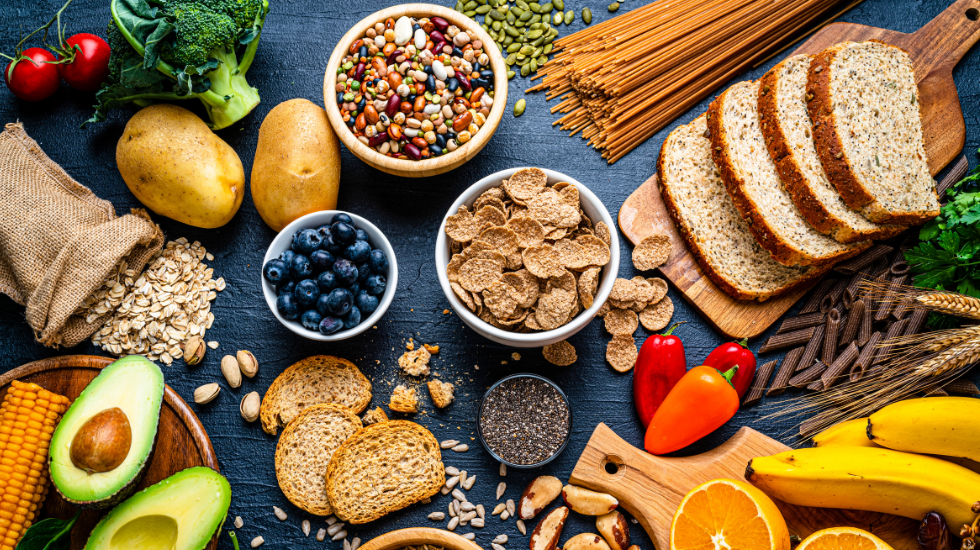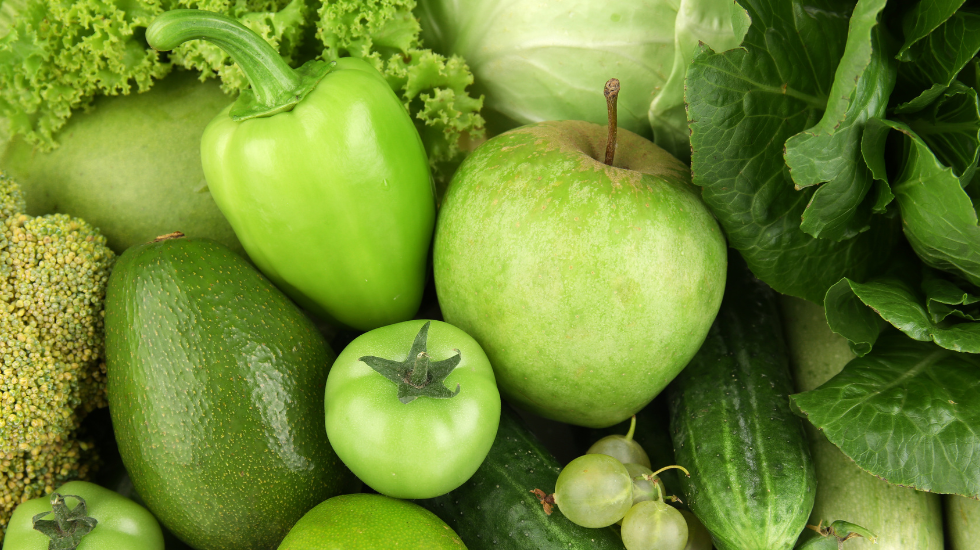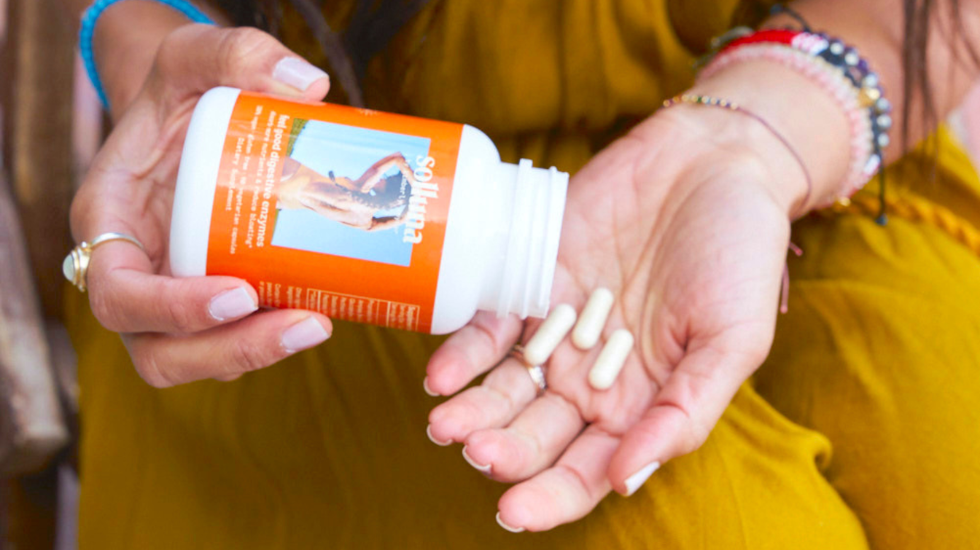Going plant-based can be a beautiful journey—but why does it sometimes feel like your belly didn’t get the memo?
Switching to a whole-food, plant-based diet is great for your health—you will consume more fiber. However, for many, it comes with an unexpected surprise: bloating. I’ve been on a plant-based diet for years, and I’ve had so many days where I’m so excited to dive into a big, vibrant salad, only to end up feeling like I’m carrying around a balloon in my stomach!
Before you start wondering if you’ve made the right choice (trust me, you have!), let’s dive into why your tummy might be throwing a little rebellion and, more importantly, how we can soothe it!
Why Do So Many People on A Plant-Based Diet Experience Bloating?
It’s totally normal, but it can feel uncomfortable and frustrating—especially when you’re trying to nourish your body with all the right things! So, what’s really going on?
High Fiber Diets and Bloating
First up, let’s chat about fiber- this is the most likely culprit. Now, don’t get me wrong – fiber is amazing for our bodies! It’s nature’s broom, sweeping through our digestive system and keeping everything moving.
But when we switch to a plant-based diet, we often dramatically increase our fiber intake. If our bodies aren’t used to processing all this extra roughage, it can lead to some temporary discomfort.
Fiber, particularly the insoluble kind found in plant-based foods like whole grains, veggies, and legumes, doesn’t get digested in the stomach or small intestine. Instead, it moves into the colon, where it gets fermented by gut bacteria.
While this process is super important for overall gut health, it can create gas as a byproduct, leading to uncomfortable bloating. So, when you load up on fiber-rich foods, you give your digestive system a lot more to break down, and this sudden shift can leave you feeling gassy and bloated until your gut adjusts.
This is why I always recommend making a gradual shift to a plant-based diet– don’t rush! Give your body some time to adjust!
Raw Foods and Bloating: What’s Really Going On?
While raw fruits and veggies are packed with nutrients and are wonderful for our health, they can sometimes cause a bit of digestive discomfort.
And yes, fiber plays a role, but there’s more to the story!
Raw foods are naturally higher in cellulose, which is the tough, fibrous part of plant cell walls. Our bodies aren’t able to break down cellulose on their own, so it moves through the digestive system undigested. This can lead to gas and bloating, especially if your system isn’t used to a lot of raw foods (here’s how you can get a gradual start to eating raw foods).
Plus, since raw veggies take longer to break down, they hang out in your digestive system a bit longer, giving your gut bacteria more time to ferment them—kind of like how kombucha is made! This fermentation process is healthy (and necessary!) for creating a balanced gut, but just like kombucha can bubble up, it produces gas in your system, which can leave you feeling a little puffy.
Bloating from Legumes and Cruciferous Vegetables
Foods like lentils, beans, broccoli, and cauliflower are loaded with nutrition, but they also contain a little secret: complex sugars called oligosaccharides.
These complex carbohydrates, particularly raffinose and stachyose, are resistant to digestion in the small intestine. When they reach the large intestine, gut bacteria ferment them, producing gases like hydrogen, carbon dioxide, and in some people, methane.
This doesn’t mean you have to give up on these nourishing foods (and you definitely shouldn’t!). Your body can adapt over time, and there are ways to help your digestion along the way—like adding digestive enzymes to your routine,
Related Reading: My Favorite Plant-Based Entrées
Digestive Enzymes for Plant-Based Diets
As you can see, when we fill our plates with all those gorgeous plant foods, we’re asking our bodies to break down a lot of complex carbohydrates and fibers. Sometimes, our natural enzyme production needs a little boost to keep up.
As if it isn’t obvious enough, I always recommend looking for plant-based enzyme blends to keep things running smoothly.
Here are a few key enzymes that are especially helpful for plant-based diets:
Cellulase: This enzyme helps break down the cellulose in plant cell walls, making it easier for your body to process fiber-rich foods like leafy greens and raw veggies.
Alpha-Galactosidase: Perfect for breaking down the complex sugars found in beans, lentils, and cruciferous veggies, which are often the culprits behind bloating and gas.
Protease: Helps with the digestion of plant-based proteins found in foods like tofu, tempeh, and quinoa, so your body can better absorb those essential amino acids.
Lipase: Supports the digestion of healthy plant fats found in avocados, nuts, and seeds, promoting smoother digestion and nutrient absorption.
That’s why we’ve carefully formulated Feel Good Digestive Enzymes—it includes all the key enzymes listed above (and more!).
Feel Good Digestive Enzymes to Tackle Bloating
Our Feel Good Digestive Enzymes are specifically crafted for those of us thriving on a plant-based diet. They help you enjoy the full benefits of your meals without the discomfort that can sometimes come with higher fiber and plant protein intake.
These enzymes have made such a positive difference for so many in our community, and I’m so excited about the feedback that I just have to share a few examples!
“These enzymes have been such a game-changer for so many in our community, and I’m so excited about the feedback that I just have to share a few examples!”– Nicole
“I no longer experience the vegan “fiber bloat” I used to experience from all the yummy veggies I eat daily. This makes for much smoother digestion!” – Stephanie
“I recently went plant-based but struggled from bloat due to a higher fiber intake from fruit/veggies! These changed my life no more bloat or gas from plant-based foods. I’ve already bought 3!! You NEED to try these if you are suffering from gas/bloat.” – Carrie
These testimonials really highlight the transformative power of our Feel Good Digestive Enzymes, especially for those embracing a plant-based lifestyle. Transitioning to or maintaining a plant-based diet is a journey, and it’s okay if your body needs a little extra support along the way. That’s exactly why we created these enzymes – to help you thrive on your plant-based path, feeling your best every step of the way.
Related Reading: Do Probiotics Help with Bloating?
It’s Not Just About Bloating
One thing I think many people overlook is that taking enzymes isn’t just about avoiding discomfort—it’s about truly supporting your body’s ability to thrive. When we help our bodies break down food more efficiently, we reduce bloating or gas and enhance nutrient absorption.
This means that all the beautiful, nutrient-dense foods you’re eating—whether it’s the antioxidants from berries, the protein from plant-based sources, or the healthy fats from avocados—are being absorbed and utilized by your body at a deeper level.
So if you’re tired of the bloating and ready to feel lighter, more energized, and support your body’s nutrient absorption, try our Feel Good Digestive Enzymes today!
One last note I want you to keep in mind! Enzymes are just one piece of the puzzle- and they help with a lot more than just bloating, BUT they work best when combined with mindful eating practices, proper food combining, and listening to your body’s unique needs.
Your body is always communicating with you, and the more in tune you are, the more you can support its natural rhythms.







0 Comments